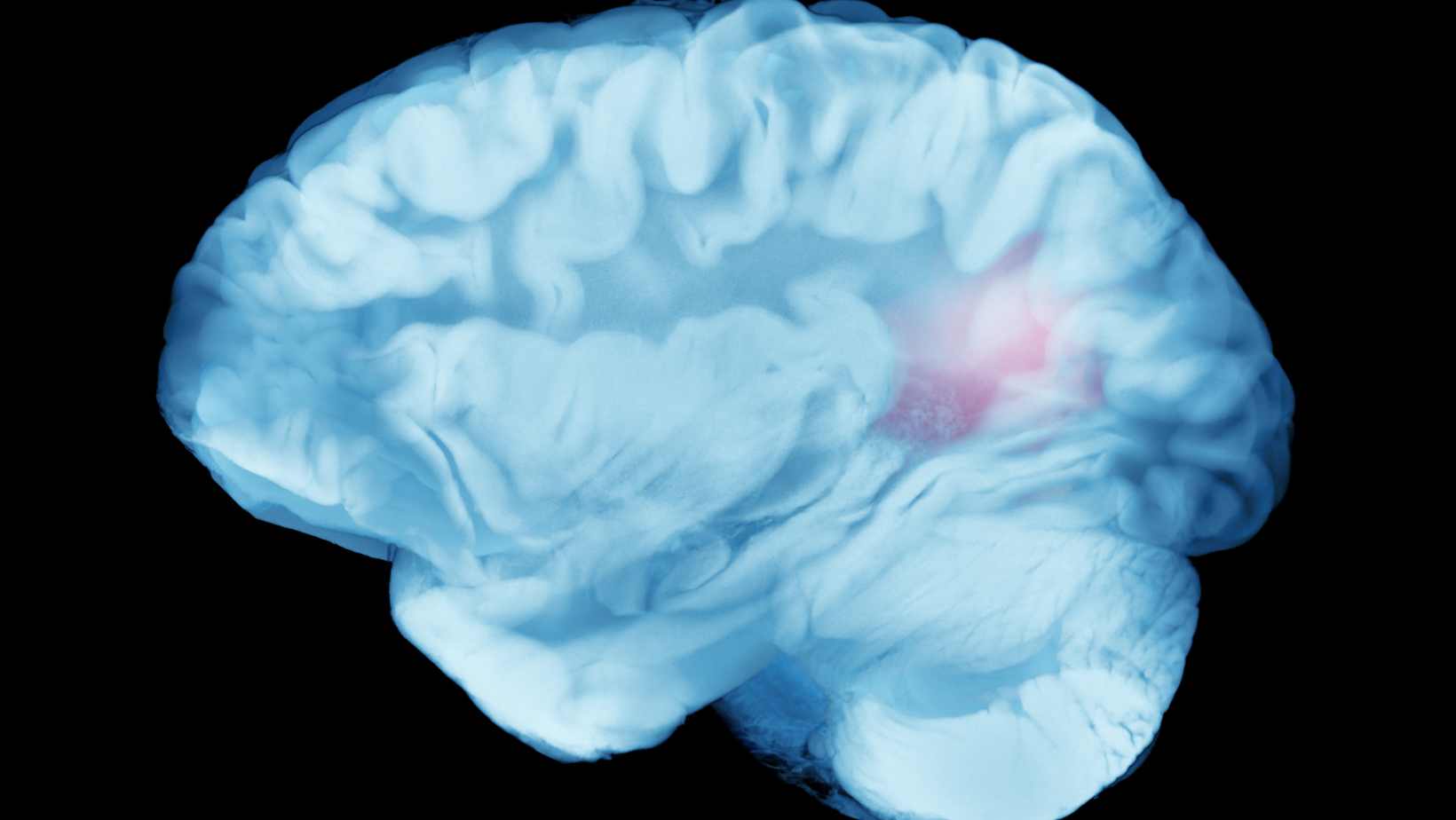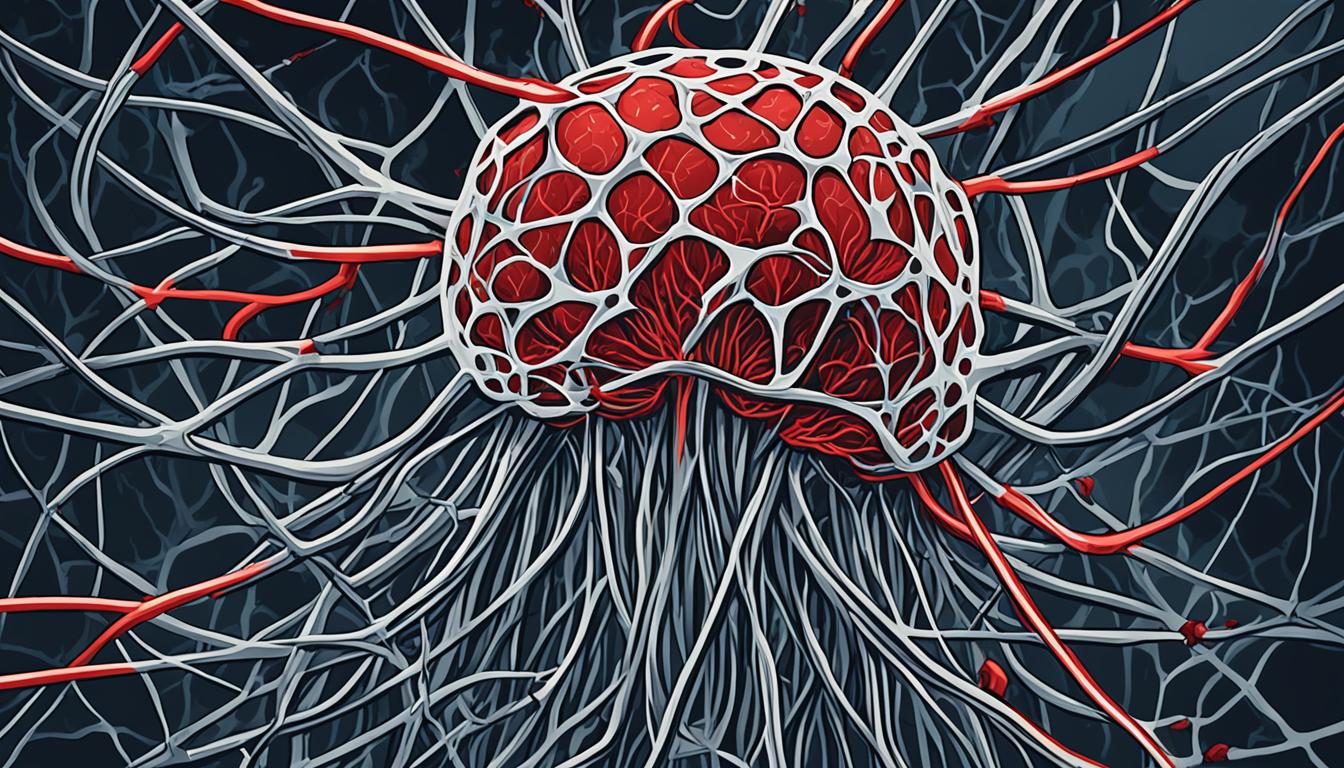Tourette syndrome (TS) is a neurological disorder. It causes sudden and uncontrollable movements or sounds known as tics. TS is part of a group of conditions called tic disorders. These may include motor tics (body movements) and vocal tics (sounds you make).
TS is more common in boys than girls. Usually, the worst of the tics happen during early teens. However, by the late teens to early 20s, tics usually lessen and become easier to control. For some, TS continues into adulthood, but it doesn’t shorten life.
Table of Contents
ToggleIntroduction to Tourette Syndrome
Tourette syndrome is a neurological disorder that causes tics. Tics are sudden movements or sounds you can’t control. They might be mild or severe, affecting how you talk, move, or live your life every day.
These tics often start between the ages of 5 and 10. They might get worse in your early teens. However, they tend to improve by the time you’re in your twenties. Still, for some people, the symptoms can last much longer.
Currently, there is no known cure for Tourette syndrome. But, there are treatments available. These can help you deal with the symptoms and improve your quality of life.
Understanding the basics of Tourette syndrome is important. It’s the first step in managing this condition. Learning about what causes tics and how to live with them can make life easier.
What is Tourette Syndrome?
Definition and Key Characteristics
Tourette syndrome (TS) is a brain condition known for repetitive, sudden movements or sounds. These are called tics. These tics can be motor (body movements) or vocal (sounds). They change over time in several ways, like type, how often they happen, where they occur, and how strong they are. This shows the main points of this neurological disorder.
Types of Tics
Tics come in simple and complex types. Simple tics are fast, short, and repetitive. Think of eye blinking, face twitching, or shoulder movements. Complex tics are more detailed. They might be a combination of faces twitching and head movements or shoulder movements.
Onset and Progression
Signs of Tourette’s usually start between 5 to 10 years old. Tics might get worse in early teenage years before getting better as teenagers age. Yet, for some, it might last into adulthood. The kind and timing of symptoms can differ a lot between people.

Symptoms and Classification of Tics
Tourette syndrome comes with many types of tics. These can be slight or strong, and they affect your daily life a lot. We’ll look into the different kinds of tics linked to Tourette syndrome.
Simple Motor Tics
Simple motor tics are quick, small movements using only a few muscles. You might see someone blinking a lot, making faces, or moving their shoulders. These actions are often with Tourette syndrome.
Complex Motor Tics
Then there are complex motor tics. These are more involved and use multiple muscle groups. Someone might twist their face while shrugging their shoulders. These might affect your daily life more.
Simple Vocal Tics
Simple vocal tics involve making sounds, like clearing your throat or sniffing. They can include barking or grunting sounds. These tics are sometimes hard to control, and they might make people look at you.
Complex Vocal Tics
Complex vocal tics involve saying things over and over (echolalia) or using bad words (coprolalia). These tics can really be tough and affect how you interact with others.
The tics someone with Tourette’s experiences can be very diverse. And, they might change over time. That’s why it’s key to work with your health team to handle your tics in the best way.
Tic Triggers and Management
Living with Tourette syndrome means dealing with tics that can surprise you. It’s important to know what makes your tics worse. Things like being excited, feeling anxious, and tight clothes can make your tics act up. Even hearing others make similar sounds can set off your tics.
Factors That Worsen or Improve Tics
Tics might lessen during light sleep and stop in deep sleep. This shows that how alert and focused your brain is can change your tics. It’s key to figure out and avoid what sets off your tics, whether it’s something in your surroundings or how you feel. This can help you control your symptoms better.
Premonitory Urges
Before a tic happens, many with Tourette syndrome feel a strong urge or a strange bodily sensation. It can be like needing to scratch an itch or feeling tension. Acting out the tic can relieve this sensation. Learning to spot these early signs and finding ways to cope can be very helpful in managing tics.
Tic Suppression
Some with Tourette syndrome can stop their tics for a while with practice. But, this may build up tension that has to come out eventually. Using methods that deal with these urges before they turn into tics, along with avoiding triggers, is a good strategy. It can help you keep your tics under control and live better.

Co-occurring Conditions and Disorders
Many with Tourette syndrome face more than just tics. They might also have ADHD, OCD, anxiety, and learning issues. These problems often last into adulthood. Treating these issues is key to handling Tourette syndrome.
Attention Deficit Hyperactivity Disorder (ADHD)
ADHD is common with Tourette Syndrome, affecting attention and impulsive control. About 85% of those with Tourette have this issue. It’s a key part of the problems people face.
Obsessive-Compulsive Disorder (OCD)
Obsessive-Compulsive Disorder (OCD) affects over a third of those with Tourette Syndrome. It brings unwanted thoughts and repetitive actions. The link between OCD, ADHD, and Tourette might be genetic.
Anxiety and Learning Disabilities
Besides ADHD and OCD, Tourette syndrome often links to anxiety and learning problems. These issues can greatly affect life and daily tasks. It’s vital to deal with them to manage Tourette syndrome well.
Educational Settings and Accommodations
Students with tourette syndrome may do well in regular classrooms. However, challenges from ADHD, learning disabilities, and OCD can make things hard. They might need special help like tutoring, private study areas, or different ways to take tests. Sometimes, a change to a specialized school is best.
Customized help for them can involve special test places or extra time for tics. Having a calm place to go to can be a big help. Some students might need time outside the classroom too.
Using tablets or computers is an often-used tool for students with tourette’s who struggle with writing. Removing test time limits can ease their stress. It’s key not to punish them for poor handwriting but to offer other assignment options.
For those with tourette’s and OCD, personalized solutions are vital. This might mean audiobooks for those who count words or a computer for those driven to write. Some students benefit from breaks between tasks and getting to choose where they sit.
Settings for learning need to have quiet spots and chances to move for students with tourette’s and ADHD. They might also need help with sensory issues. It’s crucial to have plans that fit each student to manage overstimulation.
Staying in the loop with the school nurse and parents is super important. This helps in finding the right support for students as their needs change.

Causes and Risk Factors
The exact cause of Tourette syndrome is a mystery. We think it comes from a mix of genes and things in the environment. Scientists also believe that problems in the brain’s regions may be involved. These include the basal ganglia, frontal lobes, and cortex. Issues with chemicals in the brain like dopamine and serotonin might also have a part.
Brain Abnormalities and Neurotransmitters
Research shows that Tourette’s could be due to problems in certain brain areas. The basal ganglia, important for movement and behavior control, might have an issue. Also, too little or too much of certain brain chemicals, such as dopamine and serotonin, could cause tics and other symptoms in people with Tourette’s.
Genetic and Hereditary Factors
Genes have a big impact on Tourette’s. Some genes like SLITRK1, NRXN1, and CNTN6 seem to mess with nerve connection forming. Since it can run in families, people with a family member who has Tourette’s might have a higher risk too.
Gender and Gene Expression
Tourette syndrome shows up more in boys than in girls. Boys are 3-4 times more likely to have it. This might be connected to how genes are expressed differently in males and females. It could affect how the disorder shows up in each gender.
Diagnosis of Tourette Syndrome
Finding out if someone has Tourette syndrome (TS) takes a detailed look by a doctor. They consider many things while how is tourette syndrome diagnosed and the tourette syndrome diagnostic process.
Diagnostic Criteria
A doctor checks for both motor and vocal tics. These tics must happen often, every day, for at least a year. They should start before a person turns 18. It’s also important that the tics are not because of medicines, other drugs, or health issues.
Ruling Out Other Conditions
Typically, common tics are first recognized by a family doctor, pediatrician, or a specialist in mental health. Sometimes, tests like brain scans or EEGs are done to make sure it’s not something else. Since tics vary in strength, spotting them early can be tricky.
Treatment Options for Tourette Syndrome
Tourette syndrome has no known cure yet several treatments exist to help control its symptoms. If someone has mild tics that don’t interrupt their life much, they might not need treatment. But, for those with troubling and severe tics, medicines that reduce the dopamine neurotransmitter work best. Medications like haloperidol and pimozide can help stop the tics.
Medication Management
Alpha-adrenergic agonists such as clonidine and guanfacine are also used for tic management in Tourette syndrome. They prove helpful not only with tics but also with managing behaviors and rage outbursts.
Behavioral Therapies
Behavioral therapies like CBIT alongside medicines can greatly benefit. These therapies teach skills to handle tics, lessen their impact, and deal with the syndrome better. Other approaches like Cognitive Behavioral Therapy and psychotherapy help tackle the emotional and social hurdles of Tourette syndrome.
The treatment path for Tourette syndrome is tailored to the person’s symptoms, age, and health. It also considers if they have related conditions such as ADHD or OCD. Your doctor will help create a plan that fits you best, aiming to improve your life quality while managing Tourette syndrome.
Tourette Syndrome in Children
Tourette syndrome often starts in childhood, between ages 5 and 10. It affects more boys than girls. Boys usually have long-term tics, but girls often experience OCD too.
Genetic Factors in Children
Genetics is key in Tourette syndrome, especially for children of a parent with it. They have a 50% chance of getting the disorder. But, not all who inherit it will show all symptoms.
Treatment Considerations for Children
Treating Tourette syndrome in children can include meds, therapy, and school help. The strategy depends on each child’s unique symptoms and needs. This approach aims to support their well-being.

Complications and Associated Conditions
People with Tourette syndrome often face more than just tics. They may also have ADHD, OCD, anxiety, and more. These issues can make daily life tough. It’s key to address these problems to help Tourette’s patients live well.
Many also deal with OCD. Sometimes, they might act out or have trouble controlling their actions. Anxiety disorders are common too, like panic attacks. Depression can also affect kids and teens with this condition, needing both talk therapy and possibly medication.
Tourette’s might also lead to physical problems. The risk of bone, joint, or muscle issues is higher in these cases. Plus, brain injuries are more likely in people with Tourette syndrome.
Though their intelligence is usually just as high, learning can be a bit different for those with Tourette’s. They might need help in school, like more time for tests or organizational tools. This helps them do well academically.
Working together with doctors is crucial for tackling Tourette’s and its side effects. A good treatment plan can help patients overcome obstacles. This support, both medical and social, allows them to flourish in all areas of their lives.
Living with Tourette Syndrome
People with Tourette syndrome can have active, healthy lives. Yet, it can be tough because of social and emotional hurdles. The sudden, odd tics and other issues like ADHD and OCD make social situations hard. This can lead to feeling embarrassed, anxious, and left out.
Self-Esteem and Social Challenges
Seemingly uncontrollable tics can really shake up social scenes for those with Tourette’s. It makes you self-conscious and afraid of how people will see you. This can lower your self-esteem. It also makes you avoid social stuff, adding to your struggles and making you feel alone.
Coping Strategies and Support
Creating good ways to manage your tics is key. Techniques to suppress tics, support from loved ones, and pushing for help in school or work can make a huge difference. Also, finding support groups or people dealing with Tourette’s syndrome can be a big help. It offers a community that truly gets what you’re going through.

With the right strategies and help, you can tackle the emotional and social barriers linked with Tourette’s. Facing these challenges and sticking up for your needs can boost your self-assurance and strength. This way, you can live a rewarding, active life despite the difficulties of this condition.
Research and Future Directions
Research on Tourette syndrome keeps moving forward, looking into causes, genes, and treatments. Recent studies show us genes and brain parts that might cause the disorder. This gives us a better idea of how Tourette’s works. Scientists are also testing new medicines and ways to help with tics and other symptoms. They hope to find treatments that work better and offer a good quality of life for people with Tourette’s.
The European guidelines for treating Tourette syndrome have put a focus on psychological help. They give details in the range of 403–423 for Part II. Studies about females with Tourette’s show they might experience the disorder differently. For instance, in Sweden, studies linked Polycystic ovary syndrome with other mental health issues.
We know that many people with Tourette syndrome also have other mental health conditions. How common these conditions are and when they might appear is also studied. For example, a national look at Tourette’s in 2011-2012 told us how many people it affected during those years. Plus, a study in Taiwan looked at how many kids in Taipei County had tic disorders, though we lack the specific findings.
Tics are a big topic in Tourette’s research, especially in China. A study on tic disorder prevalence and habits that help, like habit-reversal therapy, offers valuable insights. Deep Brain Stimulation is also under the microscope for its effect on Tourette’s. However, we don’t have the exact figures from these studies.
When it comes to exercise and Tourette’s, some data are missing. A study from 1992 didn’t give us the full picture of mental health in a Hong Kong school. On the bright side, we can look at the numbers for how many kids in Korea seek treatment for tics.
The Yale Global Tic Severity Scale is a crucial tool for measuring tics. It’s based on a big study, but we don’t have the exact statistics. In Canada, guidelines suggest a mix of therapy, brain stimulation, and magnetic therapy for treatment. However, the exact effects are yet to be fully detailed.
Conclusion
Tourette syndrome is complex and affects those who have it in different ways. It’s known for causing sudden movements and sounds that people can’t control. Doctors think it might be linked to both genes and things in the environment. This condition often shows up with others like ADHD, OCD, or anxiety. This mix can make daily life tough.
But, there’s help available. Medicines, therapy, and changes at school or work can make a big difference. Many people with Tourette’s are able to do well in their lives. Scientists are still studying Tourette’s. They aim to find better ways to help, which gives hope.
Tourette syndrome is hard, but there is light at the end of the tunnel. People with the right care can achieve their goals and lead a happy life. Let’s all learn more about this condition. By doing so, we help those with Tourette syndrome live their best life.
FAQ
What is Tourette syndrome?
Tourette syndrome is a neurological disorder that causes tics. These are sudden and uncontrolled movements or sounds.
Tics can be mild or severe. They can make it hard to talk, do daily activities, and live fully.
What are the symptoms of Tourette syndrome?
Tourette syndrome has both motor and vocal tics. Motor tics involve body movements. Vocal tics involve sounds.
Examples of tics are eye blinking, shoulder shrugging, and repeating words. In some cases, people may use bad language.
When do Tourette syndrome symptoms typically appear?
Tourette syndrome often starts in childhood. Kids usually first show signs between 5 and 10.
Symptoms can get worse when teens are around 12 to 15. But, they might get better as you grow into an adult.
Yet, some people have Tourette syndrome their whole life.
What causes Tourette syndrome?
The cause of Tourette syndrome is unclear. But, experts believe genes and the environment have roles.
Issues in the brain and uneven levels of certain chemicals might also be involved. Family history and being male can make you more likely to have it.
How is Tourette syndrome diagnosed?
To diagnose Tourette syndrome, doctors look for particular tics. These tics must happen often, last over a year, and start before you’re 18.
The tics can’t be because of drugs, other issues, or health problems. Sometimes, more tests are needed to be sure.
What treatments are available for Tourette syndrome?
There’s no cure for Tourette syndrome, but treatments can help. Medicines like haloperidol and pimozide can lessen tics.
Behavior therapies, such as CBIT, aim to reduce and manage tics. These can make a big difference for people.
What are the common co-occurring conditions with Tourette syndrome?
Many people with Tourette syndrome also have ADHD, OCD, anxiety, or learning problems.
These can be harder to live with than the tics. They need their own special treatments.
How can Tourette syndrome impact a student’s education?
Students with Tourette might need special help at school. This can include tutoring, special classes, or different tests.
It’s important for schools to give the right help. This can make a big change for these students.
How can individuals with Tourette syndrome manage the social and emotional challenges?
Learning how to deal with tics and getting help from loved ones can make a difference.
It’s also important to ask for and find ways to make things easier. Being strong and finding support matters a lot.
What is the current state of research on Tourette syndrome?
Scientists are still looking into what causes Tourette syndrome and how genes affect it. Recent research is highlighting important genes and brain locations.
This helps us understand it better. More studies are working to find new ways to treat and handle tics and other symptoms.
Source Links
- https://www.ninds.nih.gov/health-information/disorders/tourette-syndrome
- https://www.hopkinsmedicine.org/health/conditions-and-diseases/tourettes-disorder
- https://www.mayoclinic.org/diseases-conditions/tourette-syndrome/symptoms-causes/syc-20350465
- https://tourette.org/about-tourette/overview/what-is-tourette/
- https://www.webmd.com/brain/tourettes-syndrome
- https://www.cdc.gov/tourette-syndrome/diagnosis/index.html
- https://www.cdc.gov/tourette-syndrome/other-concerns/index.html
- https://tourette.org/resource/classroom-strategies-techniques-students-tourette-syndrome/
- https://www.parentcenterhub.org/wp-content/uploads/2015/04/Classroom-Strategies-Techniques1.pdf
- https://tourette.org/resources/overview/tools-for-educators/classroom-strategies-techniques/
- https://www.mayoclinic.org/diseases-conditions/tourette-syndrome/diagnosis-treatment/drc-20350470
- https://www.healthychildren.org/English/health-issues/conditions/emotional-problems/Pages/Tics-Tourette-Syndrome-and-OCD.aspx
- https://www.news-medical.net/health/Living-with-Tourette-syndrome.aspx
- https://www.ncbi.nlm.nih.gov/pmc/articles/PMC9860289/
- https://www.ncbi.nlm.nih.gov/pmc/articles/PMC5854651/
- https://www.ncbi.nlm.nih.gov/pmc/articles/PMC3181853/
- https://arquivosdeorl.org.br/additional/acervo_eng.asp?id=813

Dr Chandril Chugh
Dr. Chandril Chugh, a renowned American Board-Certified Neurologist, is just a click away. With years of global experience, he offers trusted neurological guidance online.
→ Book a consultation to discover which remedies suit your needs best.




